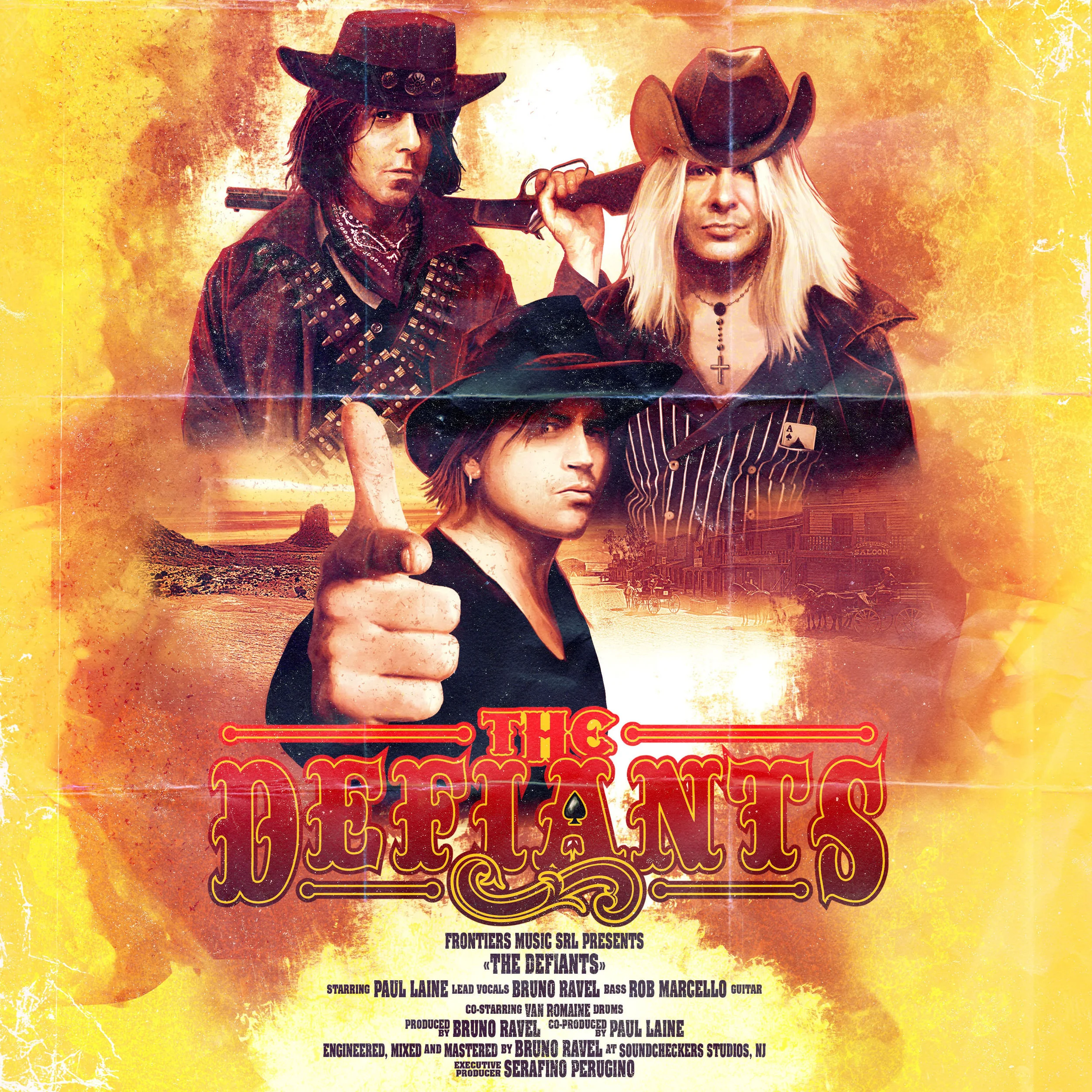The Defiants - The Defiants (Album Review)
The Defiants are Bruno Ravel: Danger Danger’s bassist, songwriter and co-founding father; Rob Marcello: longtime Danger Danger guitarist and Paul Laine: onetime lead vocalist for a band called... Danger Danger. So it's no surprise that this looks, smells and tastes a lot like a Danger Danger album. Recent shows in the US confirm that Danger Danger fronted by Ted Poley is still very much a going concern, hence the new moniker for this side project.
The last Danger Danger release was 2009’s Revolve, the long awaited reunion album with original vocalist Ted Poley, whose acrimonious split with his bandmates way back in 1993 left their third album on the shelf. The mighty, mythical and much-bootlegged Cockroach was finally released in 2001 as a double album of duplicate material, featuring lead vocals from Ted Poley on one disc and lead vocals by his replacement Paul Laine on the other. By then, of course, Laine was well-established as the band’s frontman, but it would only be a matter of time before the nostalgimaniacs would get their way and Poley would be back at the helm again. Ah, the roundabouts of hair-rock revivalism...
Having ticked off the big reunion record, it was probably something of a relief for Ravel, Laine and Marcello to assemble themselves under a new name. Perhaps they hoped they could be free of the baggage, expectations and pressure of the DD title. Revolve was an exercise in giving fans exactly what they wanted and, though by necessity a self-parody, it was nonetheless a very solid, well-crafted record. The Defiants debut, though stylistically almost identical, is by contrast more relaxed and subsequently feels less focussed.
It is undeniable though that both Ravel and Laine pen excellently catchy rock songs, mostly about girls, driving and summer nights of a certain temperature. I confess I am a sucker for it all still and insatiable fans of Trixter, Blue Tears and Slippery/Jersey-era Bon Jovi will find much to love about this record. The highly infectious ‘Runaway’ and ‘Take Me Back’ are textbook examples, replete with big wo-ohs, huge solos and cliché overload. The anthemic album closer ‘Underneath The Stars’ is also worth singling out as classic study in the blue-collar teen fairytale song, nicely peppered with Marcello’s tasteful flourishes of lead guitar. The rest of the record ticks along perfectly respectably: ‘Li’l Miss Rock’n’Roll’ is a more tongue-in-cheek party rocker, self-referential and fun; ‘Love and Bullets’ continues Bruno Ravel’s long-running metaphor of romance as artillery and welcome changes of pace come in the form of the relaxed ‘Save Me Tonight’ and the obligatory ballad ‘That’s When I’ll Stop Loving You’.
Paul Laine’s vocal and songwriting does bring a faintly different element to proceedings and returns us somewhat to the sound of his magnificent solo debut Stick It In Your Ear and DD’s Four The Hard Way and The Return Of The Great Gildersleeves records. ‘We All Fall Down’ is particularly snarly and sees Laine at his most characterful. The tougher guitar riffings of the feisty ‘When the Lights Go Down’ would not be at all out of place on Cockroach, either, which brings us neatly back on to Rob Marcello. He’s a man forever cursed with having to fill the frankly unfillable shoes of Andy Timmons but nevertheless he turns in a wonderful, effortless performance here: impressive, tight, playful, melodic and acrobatic being the words that came to mind, alongside ‘nice!’ and ‘yes!’
With Ted Poley currently promoting a new solo release, it seems that this is as close to a new Danger Danger album as we’re going to get for now. For a lot of fans, it will be just enough to keep them happy, especially as the upcoming live Defiants shows promise to include Danger Danger and Paul Laine solo hits. For everyone else, this is simply a Danger Danger album which sounds like it was made while some of the band members were at lunch. The Defiants aren’t musical outlaws by any means, but this release sees them very much on the run from their past and, in some cases, their present.
Review by Rich Barnard.

